- Homepage
- >
- Plant-based Food & lifestyle
- >
- Vegan diet: What do vegans eat?
Vegan diet: What do vegans eat?

Image source: shutterstock.com / Goskova Tatiana
Vegans eat exclusively plant-based food. In other words, they do not eat animals or animal products. But there is much more to a vegan way of life than diet. Whether it’s caring for animals, the environment, or one’s own health, there is a multitude of reasons to choose a vegan lifestyle. ProVeg explains more about vegan diets.
Why choose a vegan diet?
It is becoming increasingly clear that the consumption of animals is a major contributor to numerous global problems. Since a plant-based diet provides a single solution to helping resolve all of these problems, the move towards a diet and lifestyle free from animal products is rapidly gaining momentum. A plant-based diet saves many animals from a life of suffering, reduces one’s personal ecological footprint, and can contribute to a fairer world. At the same time, plant-based eating can also offer a healthier and more varied diet.
Vegetarian and vegan diets have a long tradition
Throughout history, plant-based diets have always played a role, whether for religious, political, or social reasons. The concept of vegetarianism first gained cultural prominence in the 8th century BC, originating from a religious predecessor of hinduism in Indian cultures. But even in Europe, during the 6th century BC, certain schools of Greek philosophy rejected the consumption of meat for ethical and, later on, for economic, ecological, or health reasons. [1] Leitzmann, C. & M. Keller (2010): Vegetarische Ernährung. Stuttgart: Verlag Eugen Ulmer, 2. Ed., p. 37-38 The term ‘vegan’, however, only emerged in 1944 and is a contraction of the first and last syllables of the word ‘vegetarian’.[2] The Vegan Society: History. Available at: https://www.vegansociety.com/about-us/history [12.06.2018].
What to eat on a vegan diet
A diet free from animal products is extremely versatile, while the transition towards more plant-based eating opens up a world of new and exciting culinary possibilities. Animal products can easily be replaced with:
- Vegetables and fruits such as tomatoes, cabbage, beetroot, pumpkin, garlic, olives, broccoli, apples, nectarines, berries, bananas, melons, and oranges. These kinds of food are an important source of vitamins, minerals, phytonutrients, and fibre. [3] Harvard T. H. Chan (2018): Vegetables and Fruits. Available at: https://www.hsph.harvard.edu/nutritionsource/what-should-you-eat/vegetables-and-fruits/ [11.06.2018]
- Pulses such as lentils, peas, beans, soybeans, and lupins are a key source of protein.[4] Daniel, P., Harvard University (2017): How much protein do you need every day? Available at: https://www.health.harvard.edu/blog/how-much-protein-do-you-need-every-day-2015 [11.06.2018]
- Whole grains and cereals such as oats, rye, spelt, wheat, barley, millet, and rice, along with pseudocereals such as quinoa, amaranth, and buckwheat. These provide complex carbohydrates, fibre, and phytochemicals.[5] Harvard T. H. Chan (2018): Whole Grains. Available at: https://www.hsph.harvard.edu/nutritionsource/whole-grains/ [11.06.2018]
- Nuts and seeds such as flax seeds, walnuts, and hemp seeds, which provide healthy fats as well as a range of other valuable nutrients.[6] Harvard T. H. Chan (2018): Fats and Cholesterol, Available at: https://www.hsph.harvard.edu/nutritionsource/what-should-you-eat/fats-and-cholesterol/ [11.06.2018]
- Vegan meat alternatives such as tofu, vegan burgers, schnitzels, and sausages are available in many variants – for example, based on soy, seitan, or lupins. There are also many vegan alternatives to milk, yoghurt, and cheese. These are often based on soya, nuts, or cereals.
The vegan food plate offers a simple guide to healthy vegan nutrition. The composition of the vegan plate corresponds to current scientific knowledge regarding the health effects of what we eat and drink on a vegan diet.[7]Harvard T. H. Chan (2018): Healthy Eating Plate & Healthy Eating Pyramid. Available at: https://www.hsph.harvard.edu/nutritionsource/healthy-eating-plate/ [11.06.2018]
What to avoid on a vegan diet
Vegans avoid consuming animal flesh, animal byproducts, and foods containing ingredients of animal origin. This includes:
- Meat and poultry that comes from animals such as cows, pigs, horses, chickens, and turkeys.
- Fish and other marine animals, including all fish species, squids, mussels, crabs, and lobsters.
- Dairy-based milk, cheese, yoghurt, and butter.
- Eggs, such as chicken eggs and caviar.
- Honey and other bee products.
- Animal-based ingredients, such as gelatine, lactose, whey, shellac, carmine, and fish-derived omega-3 fatty acids.
- Animal-based processing agents such as gelatine, isinglass (a substance obtained from the dried swim bladders of fish), and egg whites, all of which are used for the clarification of beverages such as fruit juices, beers, and wines.
A balanced vegan diet is a healthy diet
The high consumption of animal products is one of the main causes of widespread lifestyle diseases such as obesity,[8]Tonstad S, Butler T, Yan R, Fraser GE. Type of vegetarian diet, body weight, and prevalence of type 2 diabetes. Diabetes Care [Internet]. American Diabetes Association; 2009 May [cited 2017 Sep … Continue reading diabetes,[9]Tonstad S, Stewart K, Oda K, Batech M, Herring RP, Fraser GE. Vegetarian diets and incidence of diabetes in the Adventist Health Study-2. Nutr Metab Cardiovasc Dis [Internet]. 2013 Apr [cited 2017 … Continue reading and cardiovascular disease.[10]Huang, T., B. Yang, J. Zheng, et al. (2012): Cardiovascular disease mortality and cancer incidence in vegetarians: a meta-analysis and systematic review. Ann. Nutr. Metab. 60, p.233–240 [11]Dinu, M., R. Abbate, G. F. Gensini, et al. (2017): Vegetarian, vegan diets and multiple health outcomes: A systematic review with meta-analysis of observational studies. Crit Rev Food Sci Nutr. 57, … Continue reading A varied and balanced plant-based diet can help minimise the risk of developing these diseases. In its position paper on the subject, the Academy of Nutrition and Dietetics writes that a well-planned vegan (as well as vegetarian) diet is suitable for all phases of life, including pregnancy, infancy, childhood, and adolescence. [12]Melina, V., C. Winston & S. Levin (2016): Position of the Academy of Nutrition and Dietetics: Vegetarian Diets. Journal of the Academy of Nutrition and Dietetics 116, no. 12 (December 2016): pp. … Continue reading
Furthermore, a plant-based diet reduces the risks of foodborne illnesses from salmonella and other bacteria, as well as exposure to environmental toxins.
Important nutrients in a vegan diet
With every diet – whether vegetarian, vegan, or non-veggie – good planning is essential to avoid nutritional deficiencies. Optimal nutrition is ensured by eating a balanced and varied vegan diet while paying attention to critical nutrients. Nutritionists also recommend having a blood test done every year or two.
Vitamin B12
Those eating a vegan diet should ensure a proper supply of vitamin B12 by taking dietary supplements and/or using vitamin B12 toothpaste.
Calcium
In order to meet one’s calcium needs, one should deliberately consume calcium-rich plants (for example, dark green vegetables, leafy greens, soya beans, tempeh, tahini, oats, citrus fruits, nuts, seeds, and raisins), calcium-rich mineral waters, and calcium-fortified products (for example, plant milk).
Iron
Iron deficiency is the most common nutrient deficiency worldwide.[13]WHO (2001): Iron Deficiency Anaemia, S. 15. Verfügbar unter:http://www.who.int/nutrition/publications/en/ida_assessment_prevention_control.pdf [11.06.2018] Since the body cannot produce iron, it must be ingested in sufficient quantities through food. [14] Heinrich, P. C. et al. (2014): Löffler/Petrides Biochemie und Pathobiochemie. Springer, p. 659, 736–780 [15] UCFS Health: Hemoglobin and Functions of Iron. Verfügbar unter https://www.ucsfhealth.org/education/hemoglobin_and_functions_of_iron/ [11.06.2018] Iron deficiencies can usually be counteracted by maintaining a healthy and varied diet, and by regularly eating iron-rich foods such as sesame, red lentils, kidney beans, or tempeh.
Iodine
According to the World Health Organization (WHO), about a third of the world’s population is affected by insufficient iodine intake. In Europe, as much as half of the population is affected.[16]WHO (World Health Organization) (2004): Iodine status worldwide: WHO global database on iodine deficiency. Available at http://apps.who.int/iris/bitstream/10665/43010/1/9241592001.pdf p.12 … Continue reading The body can receive an adequate supply of iodine by consuming algae or algae-based supplements such as spirulina, or adding iodised salt to one’s diet. However, an overdose of iodine can cause health problems. ProVeg provides further information on the topic in this article on how to prevent iodine deficiency with iodine-containing foods.
It has never been easier to cook delicious vegetable dishes
People who prefer to experiment in their own kitchen instead of buying animal-free ready meals are finding an increasing selection of great recipes in cookbooks and on blogs. Whether it’s gourmet food lovers, fast-food fans, or chefs who like to experiment – the colourful variety of plant-based cuisine has something for everyone. And while people are often afraid of giving up their favourite dishes, many traditional meals can be easily veganised with a few tweaks. As countless vegan cookbooks attest, a vegan diet promises pure enjoyment and satisfaction for the taste buds.
Plant-based alternatives are growing in popularity
More and more consumers are questioning the consumption of animal products. This is also reflected in the increasing demand for plant-based alternatives. While plant milks, for example, have been consumed for centuries in various cultures, their popularity has skyrocketed over the past decade. Additionally, cruelty-free substitutes (such as vegan sausages or burgers) are improving all the time and it is increasingly difficult to tell them apart from the ‘original’. Get to know the best meat, egg, and milk alternatives here.
ProVeg supports the availability of tasty plant-based alternatives
ProVeg is particularly committed to the theme of taste. On an individual level, we constantly show people new ways to enjoy plant-based food, point out healthy, cruelty-free alternatives, and support them in their implementation. Apart from raising awareness, we invest a lot of resources into creating a facilitating environment. On an institutional level, ProVeg vigorously promotes the development of great-tasting plant-based food by supporting and advising innovative companies that want to enrich the veggie market with their product. We work with caterers, chefs, businesses, and producers to improve the availability and quality of plant-based alternatives.
Veganism is not just about diet
For many, veganism is not just about their diet but applies to all aspects of their lives. A vegan lifestyle includes, for example, avoiding clothes which contain animal products such as leather, wool, or fur, and cosmetics that contain animal products such as honey or lanolin or which have been tested on animals. Fortunately, the range of vegan clothing and animal-free cosmetics is also growing and becoming increasingly available. Vegans also seek to avoid all other forms of animal exploitation and cruelty, including visiting zoos or circuses for entertainment.
ProVeg supports people in making this sustainable and enjoyable lifestyle their own.
To do so, one does not have to change overnight to living a life that is 100% plant-based. Just get started. Incremental changes to one’s diet should be made as easy as possible, which is why ProVeg provides a great deal of information about the advantages of plant-based cooking and tips for a change in diet and lifestyle. Try a few simple recipes and find out why more and more people worldwide want to live a plant-based life. Join the global plant-based movement and benefit from the numerous advantages of a healthy, climate-friendly, and compassionate diet.
Book author
Pro Health
These are general nutrition guidelines. If you have concerns about your diet, please talk to your doctor about seeing a dietitian. Discussing the use of supplements with a health professional will help to ensure that they are suitable for you. Never stop taking prescribed medications without first talking to your doctor.
References[+]
| ↑1 | Leitzmann, C. & M. Keller (2010): Vegetarische Ernährung. Stuttgart: Verlag Eugen Ulmer, 2. Ed., p. 37-38 |
|---|---|
| ↑2 | The Vegan Society: History. Available at: https://www.vegansociety.com/about-us/history [12.06.2018]. |
| ↑3 | Harvard T. H. Chan (2018): Vegetables and Fruits. Available at: https://www.hsph.harvard.edu/nutritionsource/what-should-you-eat/vegetables-and-fruits/ [11.06.2018] |
| ↑4 | Daniel, P., Harvard University (2017): How much protein do you need every day? Available at: https://www.health.harvard.edu/blog/how-much-protein-do-you-need-every-day-2015 [11.06.2018] |
| ↑5 | Harvard T. H. Chan (2018): Whole Grains. Available at: https://www.hsph.harvard.edu/nutritionsource/whole-grains/ [11.06.2018] |
| ↑6 | Harvard T. H. Chan (2018): Fats and Cholesterol, Available at: https://www.hsph.harvard.edu/nutritionsource/what-should-you-eat/fats-and-cholesterol/ [11.06.2018] |
| ↑7 | Harvard T. H. Chan (2018): Healthy Eating Plate & Healthy Eating Pyramid. Available at: https://www.hsph.harvard.edu/nutritionsource/healthy-eating-plate/ [11.06.2018] |
| ↑8 | Tonstad S, Butler T, Yan R, Fraser GE. Type of vegetarian diet, body weight, and prevalence of type 2 diabetes. Diabetes Care [Internet]. American Diabetes Association; 2009 May [cited 2017 Sep 11];32(5):791–6. Available at: http://www.ncbi.nlm.nih.gov/pubmed/19351712 [11.06.2018] |
| ↑9 | Tonstad S, Stewart K, Oda K, Batech M, Herring RP, Fraser GE. Vegetarian diets and incidence of diabetes in the Adventist Health Study-2. Nutr Metab Cardiovasc Dis [Internet]. 2013 Apr [cited 2017 Sep 11];23(4):292–9. Available at: http://www.ncbi.nlm.nih.gov/pubmed/21983060 [11.06.2018] |
| ↑10 | Huang, T., B. Yang, J. Zheng, et al. (2012): Cardiovascular disease mortality and cancer incidence in vegetarians: a meta-analysis and systematic review. Ann. Nutr. Metab. 60, p.233–240 |
| ↑11 | Dinu, M., R. Abbate, G. F. Gensini, et al. (2017): Vegetarian, vegan diets and multiple health outcomes: A systematic review with meta-analysis of observational studies. Crit Rev Food Sci Nutr. 57, p.3640–3649 |
| ↑12 | Melina, V., C. Winston & S. Levin (2016): Position of the Academy of Nutrition and Dietetics: Vegetarian Diets. Journal of the Academy of Nutrition and Dietetics 116, no. 12 (December 2016): pp. 1970–80. |
| ↑13 | WHO (2001): Iron Deficiency Anaemia, S. 15. Verfügbar unter:http://www.who.int/nutrition/publications/en/ida_assessment_prevention_control.pdf [11.06.2018] |
| ↑14 | Heinrich, P. C. et al. (2014): Löffler/Petrides Biochemie und Pathobiochemie. Springer, p. 659, 736–780 |
| ↑15 | UCFS Health: Hemoglobin and Functions of Iron. Verfügbar unter https://www.ucsfhealth.org/education/hemoglobin_and_functions_of_iron/ [11.06.2018] |
| ↑16 | WHO (World Health Organization) (2004): Iodine status worldwide: WHO global database on iodine deficiency. Available at http://apps.who.int/iris/bitstream/10665/43010/1/9241592001.pdf p.12 [11.06.2018] |


